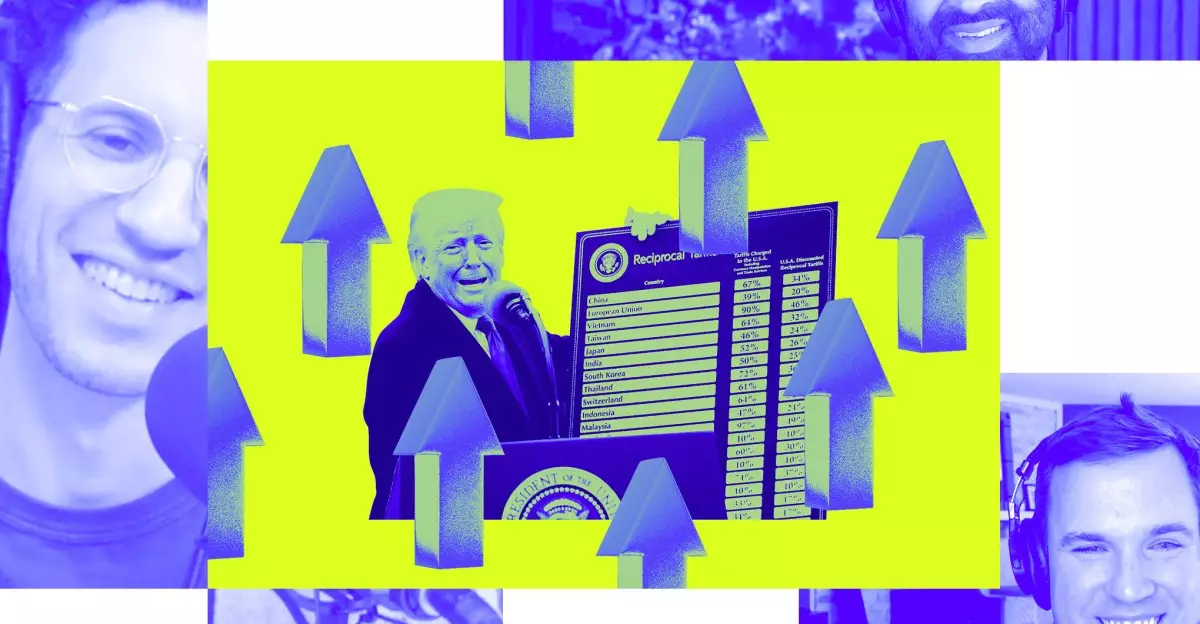In an age where technology is evolving faster than legislation can keep pace, the volatility surrounding pricing structures has become increasingly evident. The convoluted approach to tariffs, particularly those imposed during the tumultuous Trump administration, has left tech companies grappling with unpredictability. Those in the tech sector, from industry titans to nimble startups, are navigating a landscape marked by erratic price fluctuations and an unclear policy direction. It raises an essential question—how do these waves of change affect consumer habits and business strategies?
This uncertainty is exemplified by the actions of prominent corporations like Nintendo, which are not only delaying product launches but also continuously reassessing their pricing. The rapid back-and-forth highlights an underlying issue: consumers are facing a lack of transparency that threatens to undermine their trust and buying confidence. For smaller players in the market, such as Framework or budding tech companies like Tuneshine and Arduboy, these developments can pose existential challenges. Rapidly shifting economic conditions can turn once-promising ventures into casualties of a chaotic market—a reminder that reliance on predictable economic environments is increasingly becoming a thing of the past.
AI’s Ethical Quagmire: The Meta Controversy
The tech industry’s murky waters are further muddied by ethical quandaries surrounding artificial intelligence. Meta Platforms recently found itself embroiled in controversy after being accused of manipulating AI benchmarks to portray an inflated sense of capability. This kind of behavior is unsettling; it raises alarms about the integrity of AI development and its relationship to real-world applications. The potential ramifications of misleading benchmarks stretch beyond corporate reputations—they may very well shape consumer trust in AI technologies.
Moreover, the situation surrounding Apple’s Siri is painting a grim picture, revealing deep-rooted issues within even the most established companies. Reports suggest a systemic failure, suggesting that as we increasingly rely on AI for everyday tasks, we must also confront the possibility of stagnation within the sector, as even giants struggle to adapt to the rapid pace of change. This brings to light a critical debate: As tech companies prioritize innovation, where do ethics and accountability fit into the mix? Are consumers aware of, and prepared for, the compromises that are being made in the name of advancement?
TikTok’s Tug-of-War: Policy vs. Popularity
In navigating these turbulent waters, another arena captures attention—the clash over TikTok’s existence in the U.S. The ambiguous political discourse surrounding potential bans serves as another facet of the chaotic relationship between technology and regulation. Cybersecurity fears and cultural resistance have created a perfect storm, resulting in an environment rife with uncertainty. Amidst vocal bipartisan concerns, TikTok’s stronghold in the digital lives of millions complicates the matter significantly.
Brendan Carr, a notable voice in this discourse, embodies the ongoing struggle to find balance in a scenario where policy might restrict user choice. His presence on platforms like Vergecast symbolizes a larger conversation encompassing freedom in digital spaces versus regulatory measures. The dilemma forces us to consider whether TikTok’s cultural significance can be overlooked in the name of security.
Innovation Amidst Chaos: The Bright Spots
Despite these challenges, moments of creativity and innovation continue to shine through. New releases such as the Google Pixel 9A represent hope in an increasingly complex environment. Meanwhile, Instagram’s launch of a highly anticipated iPad app introduces fresh options for user engagement. These developments not only signify resilience in the face of chaos but also indicate that even during uncertain times, there remains potential for growth and evolution in technology.
While the landscape is fraught with challenges—ranging from unpredictable economic policies to ethical dilemmas in tech innovations—opportunities for innovation persist. As audience expectations evolve and the business landscape shifts beneath their feet, it is crucial for tech companies to adapt swiftly and responsibly, ensuring that progress does not come at the cost of integrity or trust. The path forward is bound to be tumultuous, but it is also ripe with potential for those willing to navigate the storm.

